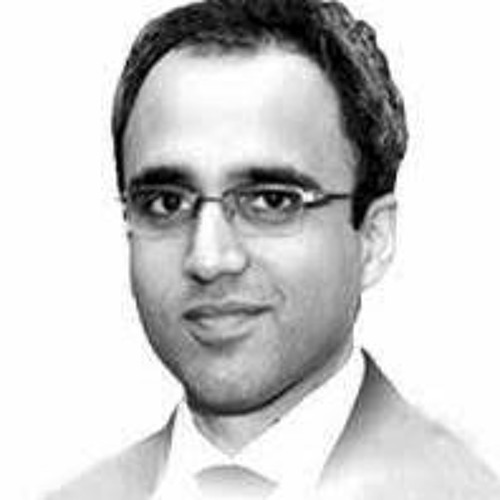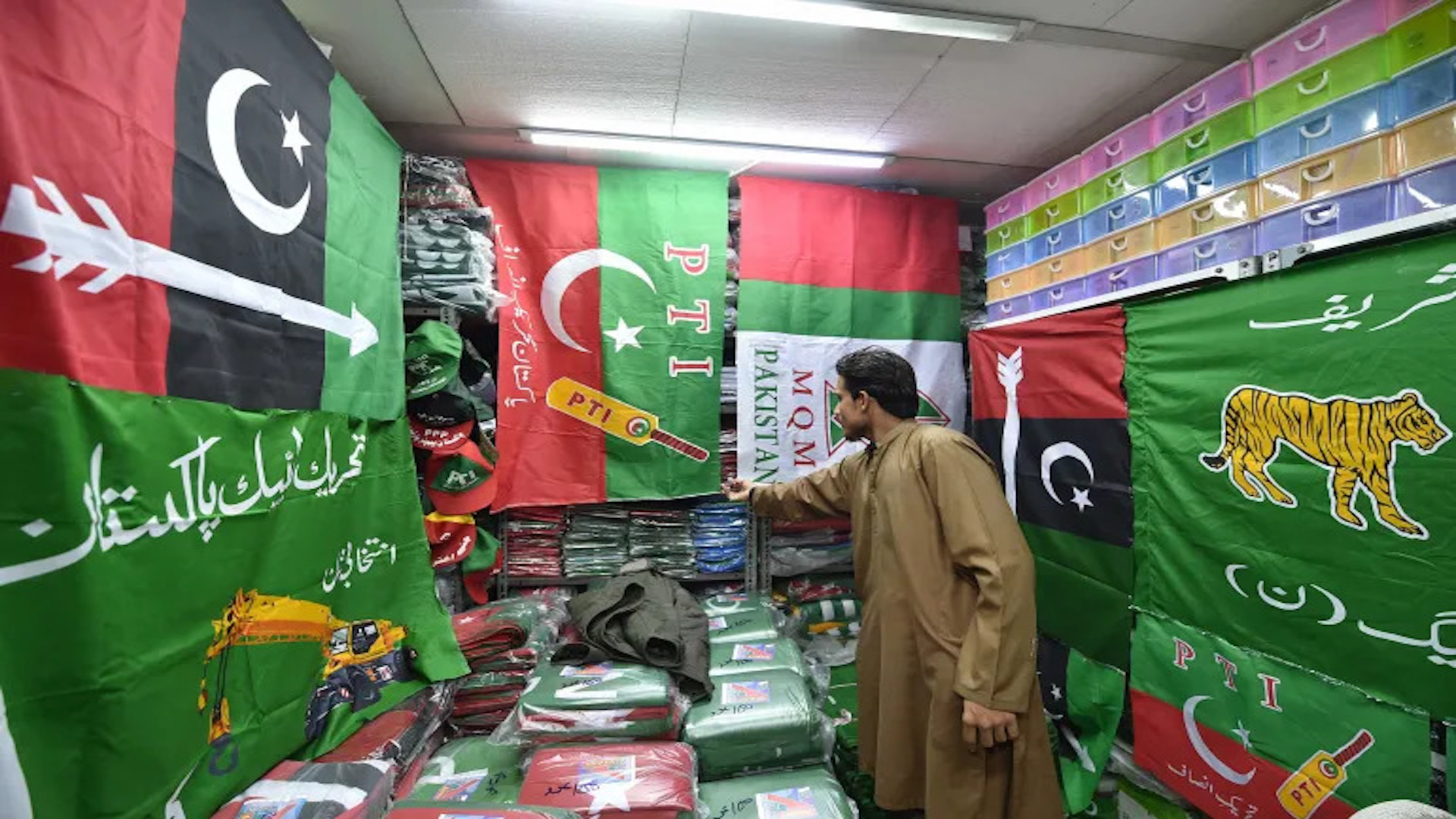This article is part of Dissent Today’s special series on Pakistan’s general elections. Follow the series here.
Any comment on the upcoming elections in Pakistan must begin with an unequivocal acknowledgement that these polls are going to be neither free nor fair.
For months, the military establishment has worked behind the scenes to ensure a result that aligns with its interests, relying on a pliant caretaker administration and the courts to engage in a wave of repression primarily targeted at the Pakistan Tehreek-e-Insaf (PTI). The creation of new “king’s” parties in Khyber Pakhtunkhwa and Punjab, comprised of defectors from the PTI, the incarceration of the party’s leaders and activists, and curbs on the media, all are indicative of the kind of pre-poll rigging that is routinely employed to shape electoral outcomes.
The conviction of former prime minister Imran Khan and party stalwart Shah Mehmood Qureshi in the so-called ‘cipher’ case, just a week before polling day, must also be seen in this context. Many observers agree the case against Khan is flimsy but believing these proceedings have anything to do with legal principles is naïve; if anything, the dubious processes used to convict former prime ministers for allegedly undeclared income or the dissemination of ‘official secrets’ demonstrates how these cases are simply pretexts for eliminating those deemed to be politically undesirable.
Some may argue that what is happening today is no different, in principle, from what happened in 2018. Then, the elected PML-N government was essentially hounded out of office as the military sought to install Imran Khan and the PTI as more pliant governing partners. Indeed, many will recall how Khan and the military repeatedly emphasized they were on the ‘same page’ as part of a hybrid regime. It is also true that once in power, Imran Khan and his party displayed authoritarian tendencies, including cracking down on opposition and dissent, that undermined the slow progress Pakistan was making towards democratization.
None of that, however, can serve as justification for the political manipulation we are currently witnessing. Since the 1950s, the principal impediment to democratization in Pakistan has been the military and its constant interventions in politics. Imran Khan and the PTI were a symptom, not the cause, of Pakistan’s political malaise, and replacing one hybrid regime with another is not reason for celebration. As noted by many of the party’s critics, the crackdown on the PTI is neither unprecedented nor is it the most severe in Pakistan’s history, but that does not excuse it. If anything, it is yet another reminder of just how predictable and cyclical Pakistan’s politics is; once again, as was the case in the 1950s, the 1990s, and the 2000s, we are witnessing little more than a rearrangement of the political chessboard with the military picking and choosing partners it hopes will be aligned with its interests.
For months, the military establishment has worked behind the scenes to ensure a result that aligns with its interests, relying on a pliant caretaker administration and the courts to engage in a wave of repression primarily targeted at the PTI.
Those inclined to take a more charitable view of current events might suggest that undoing the hybrid project of 2018 necessitates the measures that are currently being taken by the military establishment, not least of all because there are elements within the military itself that were and are sympathetic to the PTI. Following from this, it is also suggested Nawaz Sharif, the PML-N more generally, and other parties like the PPP may take a more anti-establishment stance once in power. Having dealt with the supposedly existential threat posed by the PTI, it is argued, these parties will make use of the space available to them to push back against the military and strengthen civilian democratic institutions.
This, however, may be little more than wishful thinking. If the elections yield a result in which no party has a clear majority – the most likely outcome – independents and smaller parties will wield effective veto power enabling the military establishment to rely on ‘parliamentary’ measures to keep the government in check. The fractured and opportunistic nature of the political elite, within and across parties, also means that the military will likely continue to exert influence using its old tricks – court cases, defections, engineered protests by groups like the Tehreek-e-Labbaik Pakistan (TLP), and so on. If recent history is anything to go by, those within the PML-N and PPP inclined to take a more confrontational approach to their relationship with the military will find themselves sidelined by their own parties.
Perhaps more importantly, it is necessary to recognize that for all the sound and fury of the elections and the drama surrounding them, there are some structural regularities that will remain in place regardless of who comes to power. All the mainstream parties, without exception, act as little more than vehicles for the protection and articulation of elite interests. On questions of policy, for example, there is little daylight between the parties – particularly when comparing their actual records in office – and there is scant evidence to suggest there are new ideas or commitments to reform that will help Pakistan navigate the difficult times ahead. The blueprint for governance remains the same; reliance on external donors for funding, illusory ‘growth’ fueled by aid, inability and/or reluctance to tax (or in any way inconvenience) the rich, and the abdication of foreign and internal security policy to a military whose primary motivation remains the collection of geo-political rents and safeguarding its own corporate interests. Whatever the outcome in February, there is little reason to expect any meaningful change to the dysfunctional civil-military dynamic that has brought Pakistan to this point.
If there is any cause for optimism, it is to be found outside the rigged arena of mainstream electoral competition. In Balochistan, tens of thousands continue to march against and protest enforced disappearances. Organizations like the Pashtun Tahaffuz Movement (PTM), Aurat March, and progressive student groups continue to mobilize against the state’s excesses. Even in the electoral arena, smaller parties, like the Haqooq-e-Khalq party, and their candidates, offer the promise of radical, progressive change aimed at producing a more inclusive, democratic, and equal Pakistan. Online, despite the curbs imposed by the state, an extremely young and dynamic citizenry continues to evade attempts to police what they can see and say, mobilizing and making use of memes, satire, and other media to have their voices heard. The military establishment and its ever-changing cast of allies will not stop trying to impose their will on Pakistan but they are ultimately fighting a losing battle.

The writer was previously an Associate Professor of Sociology at the Lahore University of Management Sciences and is currently based at the University of the Fraser Valley in British Columbia, Canada.

